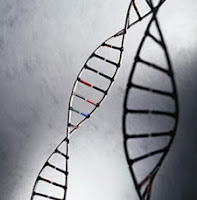U.S. scientists have unraveled the genetic code for the most common type of brain cancer in children. Gene sequencing reveals that this tumor, medulloblastoma, or MB, possesses far fewer genetic abnormalities than comparable adult tumors. The discovery that MB has five to 10 times fewer mutations than solid adult tumors could further attempts to understand what triggers the cancer and which treatment is most effective.
"The good news here is that for the first time now we've identified the broken genetic pieces in a pediatric cancer, and found that with MD there are only a few broken parts," said lead author Dr. Victor E. Velculescu, associate professor with the Sidney Kimmel Comprehensive Cancer Center at Johns Hopkins University in Baltimore. "And that means it's potentially easier to intervene and to stop it," he said, likening the cancer to a train that's speeding out of control.
Velculescu and his colleagues, who report their findings in the Dec. 16 online issue of Science, say this is the first time genetic decoding has been applied to a non-adult cancer. Each year this cancer strikes about 1 in every 200,000 children younger than 15 years old. Before migrating through the patient's central nervous system, MBs begin in the cerebellum portion of the brain that is responsible for controlling balance and complicated motor function.
You have read this article adults /
Brain /
cancer /
genetic /
health care
with the title genetic. You can bookmark this page URL http://aganaktismenoi-volos.blogspot.com/2010/12/gene-research-brings-insight-into.html. Thanks!


















